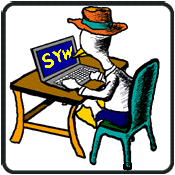Let's start with a simple definition. Prescription drugs are drugs that can only be given by a licensed physician. This means that a doctor must write a prescription or note in order for anyone to legally acquire these drugs. Prescription drugs are used to cure a number of illnesses and alleviate pain and discomfort to the people they are prescribed to. It is important to note that it is never okay to take prescription drugs that are not prescribed to you. It doesn't matter how much your grandma tells you her blood pressure medicine will help you sleep, it's never okay!
1. PRESCRIPTION DRUG BASICS
If you want to know more about prescription drugs it's best to start with the basics. Learning what each category of prescription drugs do will help you get an understanding of the specific prescription drugs.
Anti-depressants: alleviates clinical depression.
Antibiotics: kills or prevents the growth of bacteria
Anti-anxiety: Helps suppress the symptoms of anxiety.
Amphetamines: Used to control appetite and treat ADHD
Pain killers: Prescription pain killers are more potent choices for severe pain relief
Stimulants: Help alleviate drowsiness and suppress appetites in individuals
Appetite-Suppressants: Curb the cravings for food to help lose weight.
Specialty prescriptions: There are numerous prescription drugs which can be used to fight hair loss, relieve the symptoms from AIDS and increase fertility.
There are many other types of prescription drugs. Pretty much one for any illness you can think of. For more information on the types of prescription drugs you could visit DrugInformationDirectory or use a search engine like Google (www.google.com) and type in prescription drugs.
2. REFINING YOUR SEARCH
There are a wide variety of sources that can be used to find information about the different types of prescription drugs. First, figure out exactly what type of information you are looking for. If you know specifically what you want to know it will be a lot easier to find information. Knowing the medical name for the drug you are looking up instead of the street name will help out a lot.
Do you want to know about a specific drug?
Are your questions general or specific?
Are you interested in specific companies associated with the drugs?
Once you've figured out exactly what it is that you'd like to know you're ready to begin researching the topic. Before you spend time researching ask anyone you know that might be knowledgeable about the subject to direct you to information. This does not mean your Aunt Millie. Just because someone is on a lot of prescription medication doesn't mean they are knowledgeable in what they do. This may solve your problem immediately. If you're not so lucky you may be in for some research.
3. INFORMATION ON THE INTERNET
Generally speaking the internet is the most accessible resource available for instant access to information. Some topics are harder than others to research on the net. Luckily there is a relatively large amount of accurate information in free circulation on prescription drugs.
One of the best sites to get consumer and professional information on all types of prescription drugs is Drugs.com. Drugs.com keeps up to date information on most types of prescription drugs plus articles on newly available medications.
Medline Plus is a government site with prescription drug information, news, health information and links to local health services in your area.
Drug Digest offers an extensive drug library, a section on treatments and conditions, drug comparisons and interactive tools for you to use.
The FDA website has consumer drug information, updates on recent approvals, warnings and alerts concerning prescription drugs and information on the clinical trials of prescription drugs trying to gain approval.
For more information on prescription drugs, their uses and side effects you could visit the Mayo Clinic website.
You can use these sites to find the information you need or as a reference point from which to begin your own research.
4. NON-INTERNET INFORMATION
In addition to all the online information you can find there are many opportunities for information elsewhere.
A medical encyclopedia will probably have information on any drug your are interested in learning about
General encyclopedias will have information on major events in history about prescription drugs and general information on the subject
Medical Journals will often have articles pertaining to information you might be interested in.
Any hospital will be glad to lead you in the direction of information if you simply give a call to their main desk.
5. WHERE TO FIND NON-INTERNET SOURCES
A library is a good place to start in your search for literature on the subject of prescription drugs. Most city libraries will have a set of current medical encyclopedias and dictionaries as well as medical journals and scholarly articles. If you are interested in purchasing books on the subject of prescription drugs any major bookstore chain will be able to give you information on where to buy medical encyclopedias and journals if they don't carry them. Another great place to find medical information is a major university. These institutions will be glad to direct you to information on prescription drugs if you give them a call or send an e-mail.
Your local bookstore will also have a plethora of books about prescription medication. The American public seems to be obsessed with illness so bookstores tend to keep plenty of reference books on hand. Look in the health section or ask someone at the information desk where to find them.
Resources


